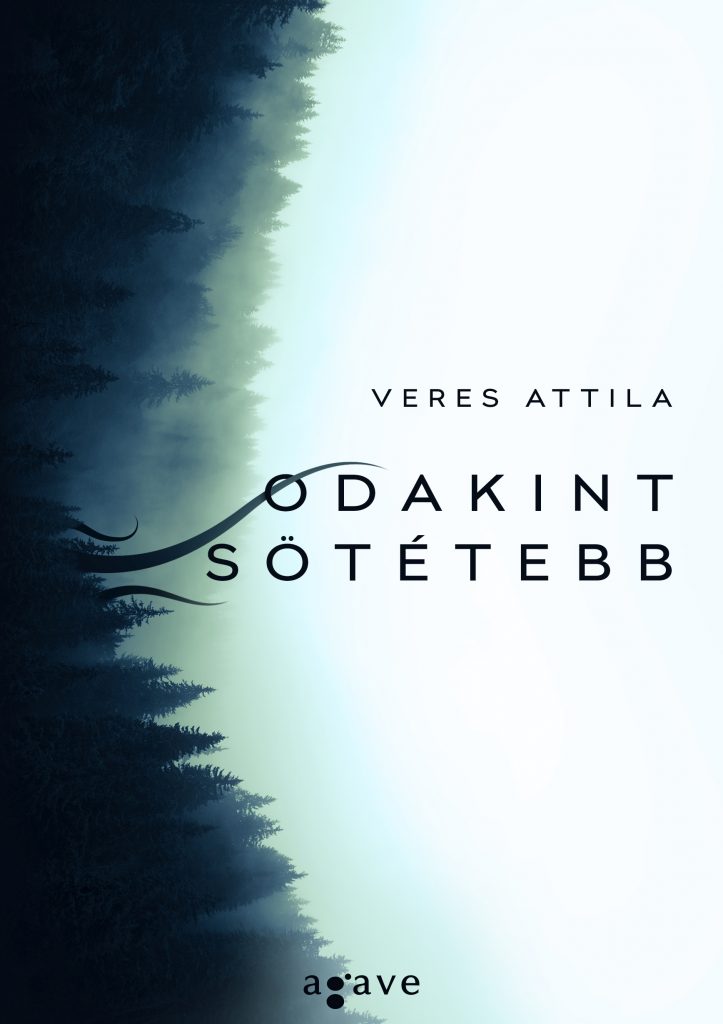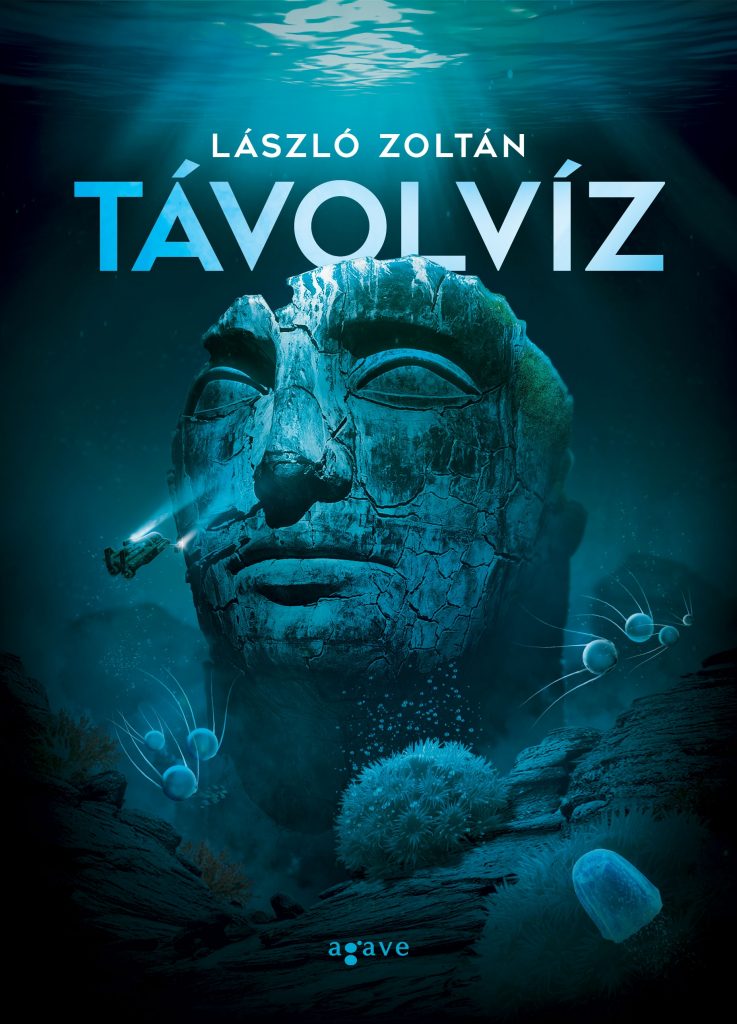By Bence Pintér: How was your year, fellow American speculative fiction readers, the first year in the reign of Donald Trump? Was it tough? As a journalist living in a self-declared illiberal democracy in the middle of the European Union, I can tell you it can be worse. Post-truth and corruption in the land of Viktor Orban is standard, Russian influence is a fact for sure, blatant xenophobic populism is rampant since 2015 and alt-right is not just an underlying theory, but a proudly declared practice. I encourage you to hold to the truth and fight for your institutions before it’s too late.
But I’m not here to tell you about the sad realities of politics. (I did that a few years ago here. Things got worse since.) I want to tell a brighter story, a story about the state of speculative fiction fandom of Hungary. 2017 was a distinct year for Hungarian genre fans: we had the opportunity to read an unusually large number of engaging books by domestic and foreign authors, established a new convention and held a survey to learn about the Hungarian SFF readers and their reading habits.
ViTa 2017
I always feel a bit of envy when I read about all the conventions where English-speaking people can come together and talk about our beloved genres. It seems like there are conventions in every city, minor or major, dealing with every genres and subgenres from every imaginable perspective. Hell, I know, because I asked them last year, that even in Poland fans have a speculative literature convention in every major town. Can’t we do that? – I asked a lot of times. As 2017 proved, we can.
Organized by Próza Nostra, a blog established seven years ago in Szeged, we held the first of a planned annual con focusing solely on speculative literature. (For the record, we had HungaroCon and some number of anime and player cons before in Hungary, but these are organized with a broader approach.) It got the name ViTa, meaning ‘debate’ and also short for “Világok talákozása”, which means “Meeting of Worlds”. It was held on 25th November in Bem Movie Theater, Budapest. (I do not write for Próza Nostra, but I was in the organizing comitee.)
I participated in the first panel, in which we talked about reviewing SFF books and the academic side of the discussion about popular culture. As other participants pointed out, Hungarian universities are not really strong in discussions on popular culture, but there is a growing number of academic theses with such topics. The philosopher and critic Tibor Bárány blames this on a supposed generational gap: elderly and even middle-aged Hungarian professors did not grow up on the products of popular culture like their peers on the Western side of the Iron Curtain. I moderated the second panel: my guests talked about the prospects of being a novice genre writer in Hungary.
After a brief lunch break we came back for the main attractions. These were the topics in the next three panels: new ways in fantasy literature, the crisis of ideas in modern science fiction and the emergence of horror and weird literature as a novelty in Hungary. All three were good, solid discussions of these topics with some of the best experts (writers, publishing professionals and bloggers) of the fields in Hungary. It was a good day, I really enjoyed it and met a lot of people whom I just knew online. Altogether 150-200 people attended, which was as much as we planned – it was full house in the Bem Movie Theater almost until the end.
The organizing committee also established an award to honor people – writers, translators, publishing professionals, bloggers and fans – who do a lot for promoting speculative literature in Hungary. All the participants and moderators of the panels could nominate and then vote in a final round. First year the annual Hexa Award was given to Csilla Kleinheincz, who brought us a lot of wonderful books in the last couple of years not only as an editor of multiple publishing houses (Delta Vision, Ad Astra, Gabo SFF) and as a translator of a whole bunch of beloved works of fiction but an author herself. (You can read her short story ‘Rabbits’ next year in the Sunspot Jungle: The Ever-Expanding Universe of Science Fiction and Fantasy anthology.)
Apart from ViTa, there were other exciting events in this year. I want to talk about one more. Organizing ViTa, we had a plan to held a panel on the importance of awards, but we shelved that idea in the end. Luckily, the SF Work Committee of the Hungarian Writers Association held another discussion few days earlier about exactly the same topic. Anikó Sohár summarized all the major English and American awards, then publishing professionals discussed their experiences about the effect of the awards on sales. As it came out, foreign or even domestic awards have no great effect on sales in Hungary.
This year also saw the creation of SFF Figyelo (SFF Watcher), a blog to keep track all the events of the speculative fiction field in Hungary.
Great Fantastic Survey 2017
As it came out on ViTa, no one really knows hard facts about Hungarian readership of science fiction, fantasy and horror literature. How many fans are out there? Do they like only one genre, or two or three at the same time? Do they read in print or on Kindle? Is there a generation gap? We had a lot of questions, so I created a survey and got answers from 1,476 readers of SFF. I give you a short summary. Please excuse me – I can’t talk in the language of statistics even in Hungarian
All respondents by gender:
- male 53%,
- female 46%,
- non-binary 1%.
Respondents by age:
- 13-18 4,9%,
- 19-24 12,7%,
- 25-30 25,5%,
- 31-40 33,9%;
- 41-50 18,6%,
- 51-60, 3,2%,
- 61-70 1%.
The exciting part is that under 30 there is female majority in every age group: women were the 62% of the respondents under 30. Between thirty and sixty there is male majority: men gave the 66% of respondents in those age groups. 45% of the respondents have a university degree, while 19% attended college. (For comparison: 7% of the Hungarian populace held a university, 12% a college degree.)
Women read more books in a year than men, but men are more loyal SFF-readers: most of them read mostly SFF while women are tend to read in other genres. Almost a half of the respondents read only in Hungarian, while another 31% read mostly in Hungarian. Only a quarter of the respondents told that they read only in print; while 31% told that they read mostly in print. Two-thirds of the respondents likes more than one speculative genre equally, while 31% have a favorite but read in other genres also. From all the respondents, 82% like sci-fi, 78% fantasy, 41% alternate history, 28% horror/weird, 25% YA. Going into details: men are more likely to like science fiction, while women more likely to like fantasy. People under thirty more likely to like fantasy, while people over thirty are more likely to like sci-fi. (I have charts here! Numbers! Mathematics is a universal language, I was told.)
Notable books
We have an excellent choice of fiction in translation: this mostly means English and American novels. Just some examples: in 2017 Hungarian readers had the chance to read the second, Hugo-winning installment of N. K. Jemisin’s wonderful Broken Earth-trilogy; the horror anthology Darkness edited by Ellen Datlow; the first book of Ian McDonald’s Luna-trilogy; the new books by John Scalzi, Jeff Vandermeer, Andy Weir, Kim Stanley Robinson and Neil Gaiman; the annual SFF anthology edited by Jonathan Strahan; and The Unreal and the Real, the excellent collection of selected short stories by Ursula K. Le Guin.
This year also saw the birth of several non-fiction books affiliated with speculative fiction. Last year liberal political scientist Csaba Tóth published a book about politics of science fiction worlds (‘A sci-fi politológiája’, Athenaeum, 2016), and this year he edited a collection of essays (‘Fantasztikus világok’, Athenaeum, 2017) about even more fictional universes from the viewpoint of social sciences – from the legal questions in Game of Thrones to politics of zombies in Walking Dead. (I contributed to this volume with an analytical essay of the posthuman societies in the Jean le Flambeur-trilogy by Hannu Rajaniemi.) At the end of the year HVG Könyvek published Holnap történt (‘It happened tomorrow’), a long-awaited book by András Kánai, founder-editor of the best-known speculative fiction blog SFmag. Kánai explored five topics which were once the tropes of science fiction, but nowadays they are the present or the near-future: from the 3D printing to the colonization of Mars.
We also have a handful of talented writers to entertain, enchant, surprise and horrify us with their fiction. Here is a selection of books I found the most important in the last year by Hungarian authors. Remember the first paragraph, where I mentioned xenophobic populism in our dear country? As you will see, the main topic in science fiction this year was xenophobia as well: there were three novels with the premise ‘weird alien creatures appeared here from nowhere, and a lot of people hate them’.
Attila Veres: Odakint sötétebb (Darker on the Outside)
In this engaging piece of weird fiction we follow Gábor, a typical Millennial as he flees the city to work on a farm in the countryside. But the animals he will attend to are no ordinary ones: on a cold winter night 30 years ago this little part of Hungary became a really weird place. All the owls disappeared in the forest, people killed themselves and there was an earthquake in a span of few hours. In the morning there were these uncanny creatures in the woods, the cellofoids: they are part sloth, part cat, part octopus and their milk supposedly cures cancer. That’s why Hungarians started to hunt them, and why they live in reserves nowadays. After Gábor arrives, there are more and more weird occurrences around the creatures, and it becomes clear that some really evil thing is lurking in the woods and the little village, waiting for Gábor. Then, surprisingly, the apocalypse begins.
If you ask me, this book was simply the best read this year in all of Hungarian genre fiction. See, we did not really have horror or weird authors and novels at all. I wrote about this book four or five articles, arguing that Veres proved: weird is the best genre to talk about Hungarian realities. At least this is the case with this exceptional book. (Agave Könyvek, 2017)
Brandon Hackett (Botond Markovics): Xeno
Few decades into the future an armada of alien spacecraft appears in the Solar System. The aliens (called ‘migrators’ by earthlings) conquered the planet and opened portals to three different planets populated by civilizations really different from humanity. The never-seen migrators force a million members of each race to move to the other planets. That is the order of the world for decades now. Olga Ballard, the daughter of the famous xenologist Ben Ballard is destined to become a brainwashed Speaker of the migrators, but with help of the resistance movement she flees. She and a selected team of soldiers and academics then try to find the answer for the final question: who are the migrators and what is their purpose?
Hackett’s take on the topics of migration and xenophobia in this far-reaching space opera is chilling, entertaining and gripping: once the action starts, you cannot take it down for hours, until the surprising twists at the end. (Agave Könyvek, 2017)
Zoltán László: Távolvíz (Farwater)
100 million intelligent alien aquatic creature appear on a starship/submarine in the depths of the Atlantic Ocean, and they want to serve humanity. Where did the creatures called crea came from? Who created them? It seems sure that they were tailor-made by mysterious masters to serve. Maybe the Dänikanists have the truth and humans from the future sent back these little guys to help us through the hard years of climate shift? Nevertheless, humanity is changed, nation states were dissolved as everyone moved to the coasts to work with creas, and utopia came in the wake of their appearance and with their advanced technology of the “slow time machines”. But not everyone thinks that they have ultimately good intentions, and not everyone accepted them as pals. Goda Gellard accidentally grew up in a slow time machine, cut off from the world with her mother. That means that while they were inside for twenty years, outside just few hours passed. It is up to them to find out the truth about the creatures.
Zoltán László was the first Hungarian science-fiction writer who managed to fascinate me in 2009 with his novel ‘Keringés’ after years of reading the American masters of the genre. Since then he wrote an urban fantasy novel and now he is back with this thoughtful and imaginative story with an amazing mystery at its heart.
Olivér Csepella: Nyugat + Zombik (Nyugat + Zombies)
In 2013, details of a comic book circulated on the Hungarian part of internet. Depicted on them were the most famous writers and poets of Hungary, the first generation of the Nyugat literary journal (published from 1908 to 1941) – with axes, shotguns and swords, dealing with a zombie outbreak, painted in a vibrant art deco style. Everyone immediately fell in love with this snippet of a planned seven-part comic book series, and when on year later the author, Olivér Csepella asked for some spending money to create the comic, people donated twice the amount he asked.
Still, we had to wait three years for Csepella to finish his work, well over the deadline he set. Nevertheless, the 264 pages long comic book published this December is a joy to behold, an incredibly funny, thoughtful adventure in which our most famous literary luminaries killing countless zombies to save the soul of the Hungarian people.
Follow Bence Pinter’s SFF blog Spekulatív Zóna. (Link takes you to his English-language posts).
Discover more from File 770
Subscribe to get the latest posts to your email.





Thanks for this fascinating insight into Hungarian SFF.
@Bence
Thanks for the article, and congratulations on the successful con.
Pingback: AMAZING NEWS FROM FANDOM: 12-14-17 - Amazing Stories